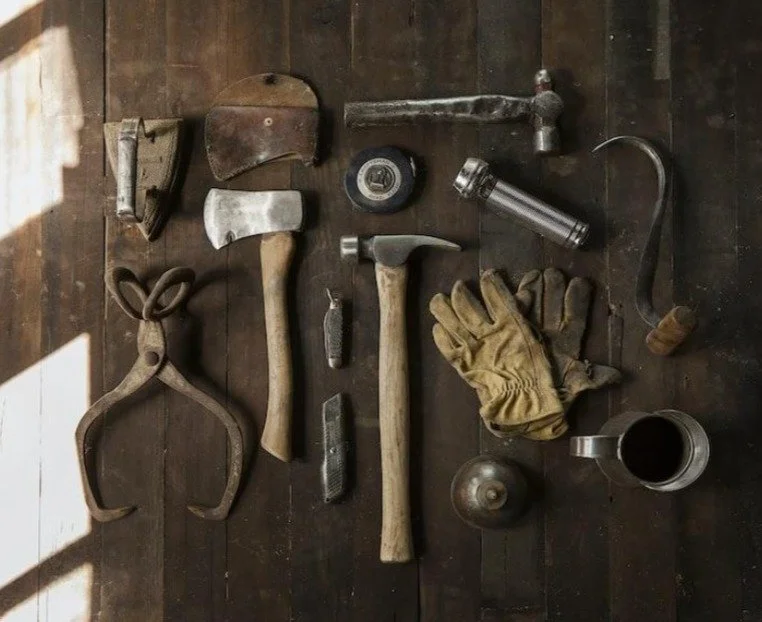Working with Concrete? You’ll Likely Need These Different Tools
Are you a do-it-yourselfer looking to take on a big project involving concrete? Then you’ll want to make sure you have the right tools at your disposal. Working with concrete can be difficult and time-consuming if it is not done properly, so having the correct equipment for the job is key.
Besides providing different types of tools, we'll go through what each tool does and why it is important for completing projects safely and efficiently. So if you're about to jump into concrete work, read on!
Understanding the Different Types of Concrete Tools
Working with concrete isn't easy but having the proper tools can achieve the desired results. With so many different types of tools available, it can be difficult to know what is needed for a specific job. Knowing the differences and uses of concrete tools such as trowels, bull floats, edgers, and groovers can make all the difference in finishing a project effectively and efficiently. With the right tools at hand, even a novice can achieve professional-looking results.
Floor Scrapers – Remove Excess Material and Smooth Edges
Floor scrapers are an essential tool for any home renovation or construction project. They are designed to remove excess material and smooth out rough edges, creating a perfect surface for the installation of new flooring. Although these tools may come at a high cost, it's not hard to look for concrete scrapers for sale — all you need to do is know the most suitable companies for your needs! With their sturdy construction and sharp blades, floor scrapers are able to tackle even the toughest of surfaces, from concrete to tile.
Using a floor scraper is not only practical but can also be satisfying. Watching as the excess material is scraped away, revealing a clean, flat surface, is truly satisfying. So if you're looking to give your floors a new lease of life, consider using a floor scraper to achieve the perfect finish.
Power Drills – An Essential Tool for Working with Concrete
Whether that's building a patio, creating a retaining wall, or pouring a new driveway, then a power drill is an essential tool you'll need.
Unlike regular drills, power drills are designed to work with tough materials like concrete, cement, and stone, and can easily drill through these materials without breaking or cracking. They're also incredibly versatile, allowing you to attach a variety of different bits for different purposes like drilling holes, driving screws or bolts, or chipping away at tough surfaces.
Investing in a good quality power drill will make your concrete projects easier and faster while ensuring that you get professional-looking results every time.
Saws – Making Clean Cuts Through Concrete
Having the right saw can make all the difference in achieving a clean and precise cut. With the advancements in saw technology, there are now a variety of saws available on the market specifically for cutting through concrete. From handheld models to walk-behind options, there's a saw for every job. And with features like diamond blades and adjustable depth settings, these saws are designed to make quick work of even the toughest concrete cutting tasks.
Whether you're a professional contractor or a DIY enthusiast, investing in a quality concrete saw is a smart move to ensure the best results every time.
People like to add an ICS concrete chain saw into their home toolshed so that they can tackle tough cutting jobs with ease and precision. With its durability and ability to handle various materials, it ensures clean cuts for both small and large projects, making it an indispensable tool for any serious home improvement enthusiast.
Hammers – Breaking Up and Shaping Concrete
If you're looking to break up or shape concrete, a hammer is a tool that can get the job done.
These sturdy tools come in different shapes and sizes, from small hand-held options to larger ones that require two hands to wield. They can be made from a variety of materials — mostly steel or titanium — and have different types of heads, including ball peen, claw, and sledgehammer. When using a hammer to break up concrete, it's important to have a steady hand and aim for the weaker spots in the material.
For shaping, make sure to use a chisel attachment and take your time to create the desired shape.
Trowels – Finishing and Smoothing Out Surfaces
If you're tackling any type of masonry work, a trusty trowel will likely become your go-to tool for finishing and smoothing out surfaces. Trowels come in a variety of sizes and styles, each designed for specific tasks like spreading mortar, leveling concrete or applying plaster. The blade is typically made of high-grade steel or stainless steel to ensure durability and strength.
Some trowels also come with serrated edges for extra grip when handling wet materials. When selecting a trowel, be sure to consider the type of work you'll be doing and choose one with a comfortable handle that provides a good grip. With the right trowel in hand, you'll be well on your way to achieving a smooth and flawless finish.
Whether you’re a professional looking to build something specific or a DIYer who needs the right tools on hand for any potential project, understanding the different types of concrete tools is essential. From powerful drills to trowels for finishing and smoothing, you have all the basics you need to make accurate and precise cuts, breaks, and smooths through concrete.
With the right knowledge and tools in hand, working with concrete can be a breeze. So don't be intimidated – just arm yourself with the right info so you're ready to tackle your next project!












